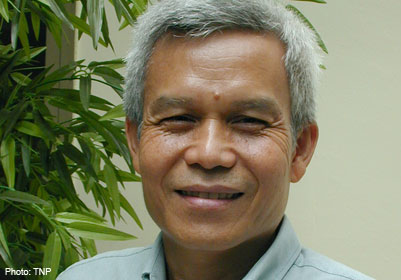
Dec 15, 2019 | News
On 15 December 2019, the ICJ joined 87 organizations and 11 individuals in a statement urging the Lao and Thai governments to investigate apparent cases of enforced disappearance and demanding that the Lao government finally reveal Sombath Somphone’s whereabouts and ensure justice for him and his family.
The statement was issued on the seventh anniversary of the disappearance of Lao civil society leader Sombath Somphone and called particularly for the establishment of an independent and impartial investigative body tasked with determining Sombath’s fate and whereabouts without delay, considering the Lao police’s protracted failure to effectively investigate his case. The new body should have the authority to seek and receive international technical assistance in order to conduct a professional, independent, impartial, and effective investigation in accordance with international standards.
Sombath Somphone was last seen at a police checkpoint on a busy street in Vientiane on the evening of 15 December 2012. Footage from a CCTV camera showed that Sombath’s vehicle was stopped at the police checkpoint and that, within minutes, unknown individuals forced him into another vehicle and drove him away in the presence of police officers. CCTV footage also showed an unknown individual driving Sombath’s vehicle away from the city center. The presence of police officers at Sombath’s abduction and their failure to intervene strongly indicates state agents’ participation in Sombath’s disappearance.
Lao authorities have repeatedly claimed they have been investigating Sombath’s enforced disappearance but have failed to disclose any new findings to the public since 8 June 2013. They have met with Sombath’s wife, Ng Shui Meng, only twice since January 2013 – the last time in December 2017. No substantive information about the investigation has been shared by the police with the family, indicating that, for all intents and purposes, the police investigation has been de facto suspended.
The joint statement called on both Lao and Thai governments to promptly and impartial investigate all cases of suspected enforced disappearance in Laos and Thailand in line with international legal standards with a view towards determining the fate and whereabouts of apparent victims.
These include the cases of Od Sayavong, a Lao refugee living in Thailand who has been missing since 26 August 2019, and the cases of Ittiphon Sukpaen, Wuthipong Kachathamakul, Surachai Danwattananusorn, Chatcharn Buppawan and Kraidej Luelert, five Thai critics of the monarchy and the Thai government living in exile in Laos, who went missing between June 2016 and December 2018.
The statement further urged the Lao and Thai governments to promptly ratify the International Convention for the Protection of All Persons from Enforced Disappearance, which Laos and Thailand signed in September 2008 and January 2012 respectively; to incorporate the Convention’s provisions into their domestic legal frameworks, implementing it in practice; and to recognize the competence of the Committee on Enforced Disappearances to receive and consider communications from or on behalf of victims or other States parties.
The full statement is available here.
Contact
Frederick Rawski, ICJ Asia and the Pacific Director, e: frederick.rawski(a)icj.org
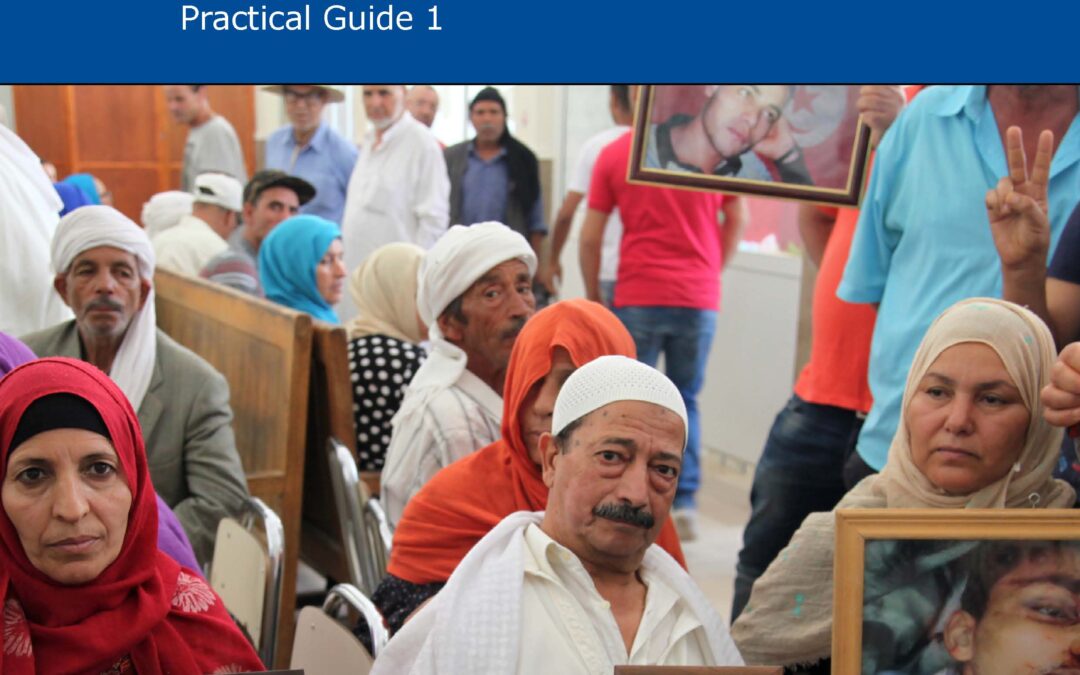
Dec 11, 2019
Today, the ICJ released Practical Guide 1 on the adjudication of crimes under Tunisian and international law, the first guide in a four-part series on accountability for crimes under international law and the Tunisian Specialized Criminal Chambers (SCC).
Practical Guide 1 addresses the application of Tunisian law governing the penalization of crimes and modes of liability, in relation to international law and standards.
The SCC were established in 2014 to adjudicate cases involving alleged “gross human rights violations” between 1955 and 2013 referred by the Truth and Dignity Commission.
“Tunisia has obligations under international law to ensure justice for victims and combat impunity for the egregious human rights violations that were committed in the past,” said Saïd Benarbia, ICJ MENA Programme Director.
“International law is directly relevant to the work of the SCC, particularly since the gross human rights violations over which the SCC have jurisdiction are either not defined in domestic law or are defined inconsistently with the definitions under international law binding Tunisia,” he added.
The Practical Guide sets out relevant international law and correlates it to related provisions of Tunisian law.
The Guide examines the principles of legality and non-retroactivity under international law and their application in the domestic system, and conducts an analysis of the definition of crimes under domestic law vis-à-vis international law for arbitrary deprivations of life, arbitrary deprivations of liberty, torture and other ill-treatment, enforced disappearance, rape and sexual assault and crimes against humanity.
Although the transitional justice framework governing the SCC gives judges some tools to remedy the gaps and inconsistencies in domestic law, legislative reform is needed to ensure Tunisia is in compliance with its obligation to penalize crimes under international law and investigate, prosecute and remedy them whenever they are committed, whether pre- or post-2011.
“Tunisian legislators gave the SCC the mandate to adjudicate gross human rights violations but haven’t remedied all the gaps and inconsistencies in the domestic law the SCC were tasked with applying,” said Valentina Cadelo, ICJ MENA Programme Associate Legal Adviser.
“Tunisian authorities must now take steps to reform the law to guarantee that all perpetrators of gross human rights violations can be held criminally responsible in any Tunisian court,” she added.
Practical Guide 1 aims to:
- Explain international law relevant to the SCC, including the application of the principles of legality and non-retroactivity, statutory limitations and crimes under international law, to guarantee justice for victims of gross human rights violations and hold perpetrators accountable, while meeting international fair trial standards.
- Correlate domestic definitions of crimes with the definitions of crimes under international law applicable at the time the alleged conduct occurred.
- Describe the requirement that penalties applied upon conviction be based in law and correspond to the gravity of the crimes.
Contact
Saïd Benarbia, Director of the ICJ Middle East and North Africa Programme, t: +41.22.979.3817, e: said.benarbia(a)icj.org
Valentina Cadelo, ICJ Associate Legal Adviser, t: +21671962287, e: valentina.cadelo(a)icj.org , twitter: @ValentinaCadelo
Download
Tunisia-Accountability series-Publications-Reports-Thematic reports-2019-ENG (full report in English, PDF)
Tunisia-Accountability series-News-2019-ARA (full story in Arabic, PDF)
Tunisia-Accountability series-Publications-Reports-Thematic reports-2019-ARA (full report in Arabic, PDF)
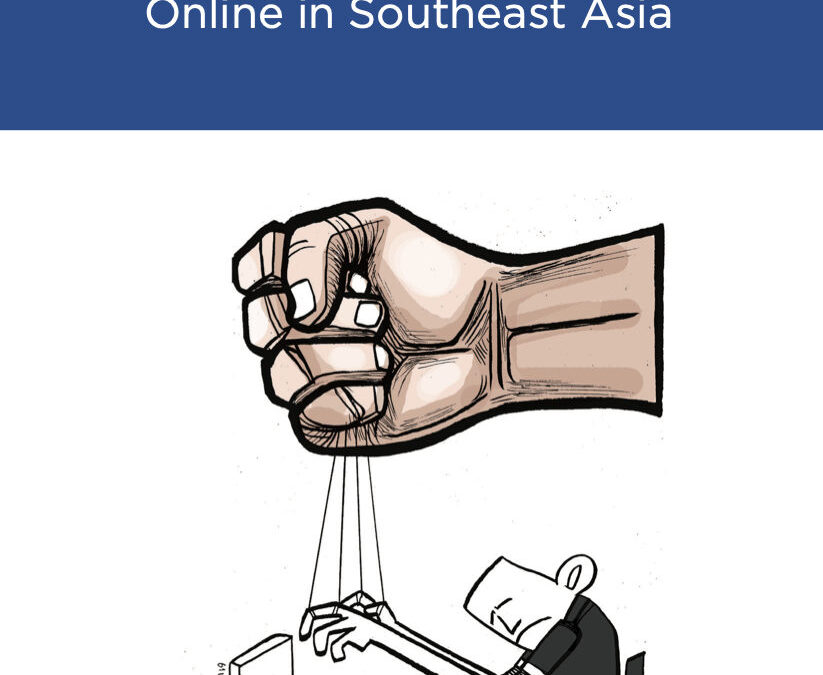
Dec 11, 2019
Today, the ICJ launched its report Dictating the Internet: Curtailing Free Expression, Opinion and Information Online in Southeast Asia at the Foreign Correspondents’ Club of Thailand (FCCT).
The report looked at selected legal frameworks and case studies across ten countries in the region – mapping out a general pattern of abuse of legal frameworks by governments in Southeast Asia to restrict and control content online to the detriment of individuals’ rights to freedom of expression, opinion and information.
This trend is not new. Southeast Asian governments have, for decades, crafted and enforced the law to curtail expression and information.
Laws enacted before the internet era – including those prohibiting defamation, lèse-majesté, sedition, contempt of court or crimes against the State – have been repurposed or supplemented to censor expression and information online.
More recent laws that have been introduced purportedly to regulate information online, control the spread of disinformation, ensure cybersecurity and justify internet shutdowns have been used for the same aims.
Multiple commonalities are evident in these legal frameworks. They commonly include:
- Vague, overbroad legal provisions;
- Severe and disproportionate penalties;
- Lack of independent oversight mechanisms; and
- Failure to provide effective remedy or accountability.
Conceptions of “national security” and “public order” have been conflated with the perceived interests of the ruling government or other powerful interests to target specific expression.
Emerging laws allow for extraterritorial application, and in some cases, seek to extend their reach beyond public expression, to private communications.
These frameworks do not advance legitimate aims or do not do so in accordance with applicable principles of legitimacy, necessity and proportionality, in violation of international law.
The report concludes by reasserting that international human rights law not only remains relevant, but that its application is needed, now more than ever in the digital age, to protect the exercise of rights online as well as offline.
The report argues that respect for human rights is essential for ensuring that all members of the global community can fully enjoy and exercise their freedom of expression, opinion and information, and that legislation framed in human rights terms is also the best and most effective way to protect against the very real threats posed by the spread of hate speech, disinformation online, cyber-attacks and other cybercrimes.
It calls for States in Southeast Asia to repeal, amend or otherwise rectify existing legal and regulatory frameworks to bring them in line with their international obligations.
The report launch included a panel discussion, which drew together human rights defenders, artists, journalists, lawyers and civil society who spoke to their experiences of being targeted by governments for their activities online, and about the impact of new laws and policies being enacted in the region to police expression on social media and through other new technologies.
The discussion was moderated by Gwen Robinson, editor-at-large of Nikkei Asian Review and President of the FCCT, and included as panelists:
- Frederick Rawski, ICJ Asia and the Pacific Director
- Ma Thida, Burmese surgeon, writer, human rights activist and former political prisoner
- Zunar, Malaysian political cartoonist
- Jolovan Wham, Singaporean civil and labour rights activist
- Sutharee Wannasiri, Thai human rights activist
Contact
Frederick Rawski, ICJ Asia and the Pacific Director, frederick.rawski@icj.org
Round-table discussion
Before the report launch, the ICJ conducted a closed-door roundtable discussion on ‘Enhancing protection of human rights online in Southeast Asia’ at the Sukosol Hotel in Bangkok.
The discussion brought together experts, advocates and researchers working in the Information and Communications Technology (ICT) and human rights sectors to identify key challenges faced in ensuring human rights protections online, and preliminarily consider potential policy solutions towards ensuring greater protections.
15 representatives from the private and civic tech sectors, digital rights advocates, civil society and researchers focused on the intersection between human rights protection and ICT participated in the discussion.
Download
Southeast Asia-Dictating the Internet-Publications-Reports-Thematic reports-2019-ENG (full report in English)
Myanmar-Dictating-The-Internet-Report-2021-BUR.pdf (full report in Burmese)
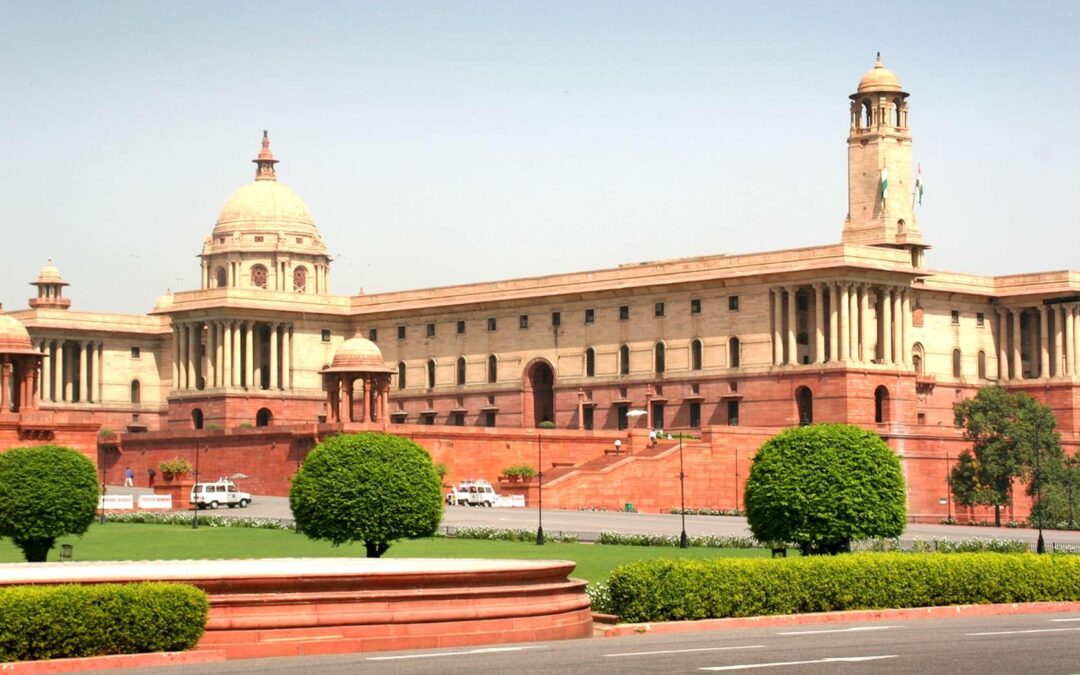
Dec 11, 2019 | News
The ICJ today condemned The Citizenship (Amendment) Bill 2019 passed by the Rajya Sabha (upper house of the Indian Parliament) on 11 December 2019, after the Lok Sabha (lower house of the Parliament) adopted it on 9 December.
The ICJ calls on India to reconsider and repeal, or substantially amend, the Bill to bring it in line with international legal obligations and Indian Constitutional principles.
“The implementation of this proposed legislation would violate core principles of non-discrimination, equal protection of the law and freedom of religion, guaranteed under international law and the Indian Constitution,” said Frederick Rawski, ICJ’s Asia Director.
The Bill amends the Citizenship Act, 1955, which governs questions of citizenship and aspects of lawfulness of migration status in India. While it purports to provide protection and shelter to religious groups such as Hindus and provides them paths to citizenship, it excludes from its ambit certain religious groups such as Muslims.
The Bill gives protected status to Hindu, Sikh, Jain, Parsi, Buddhist and Christian migrants from Pakistan, Afghanistan and Bangladesh, all Muslim-majority countries, who entered India on or before 31 December 2014. Similarly situated Muslims are categorized as “illegal migrants”.
Furthermore, the Bill provides to the above-mentioned religious communities and countries an expedited route of citizenship giving them the opportunity to be eligible for citizenship by naturalization if they have lived or worked in India for six years, as opposed to twelve years, as otherwise required.
“The Citizenship (Amendment) Bill creates two tiers of citizenship and migration status in India based on religion, with Muslims relegated to the lower end,” added Rawski. “This Bill, which entrenches discriminatory practices into law, must not be implemented unless substantially amended to provide for equal protection for persons of all religions or other status.”
The legal framework for citizenship identified by this Bill is incompatible with bedrock rule of law and democratic principles. It is highly discriminatory and arbitrary, and manifestly fails to satisfy the State’s obligations under international human rights law, including the International Covenant on Civil and Political Rights (ICCPR), to which India is a party.
The arbitrary inclusion of some groups while excluding others violates Article 14 of the Indian Constitution and Article 26 of the ICCPR. India’s international obligations require that its regulation of citizenship under domestic law be compliant with the principle of non-discrimination, equality before the law, and equal protection of the law without discrimination on the grounds of, inter alia, race, religion, or ethnic or national origin. This Bill, which provides for differentiated criteria for citizenship and other legal protection based on membership of religious group, complies neither with international law nor Indian constitutional law.
The arbitrary inclusion of some groups while excluding others would only be permissible under Article 14 of the Indian Constitution and Article 26 of the ICCPR if the classification is founded on an intelligible differentia between the group excluded and the group that is included, and (ii) the differentia has a rational relation to the objects sought to be achieved by the Act.
The Bill claims religious persecution as the ground of reasonable classification, but then arbitrarily excludes several similarly situated and widely persecuted religious minorities such as Ahmediya Muslims and Shia Muslims from Pakistan and Bangladesh, Rohingyas from Myanmar, Hazaras from Afghanistan from its protective ambit. It therefore does not meet these criteria under the Indian Constitution and international law.
The adoption of the Bill comes as the Ministry of Home Affairs of the Indian Government issued a directive on August 8, 2017 to state governments to “identify and deport” 40,000 Rohingya refugees from Myanmar, which has led to deportation of 7 Rohingya men to Myanmar already.
In addition, the Indian Government has indicated that it will pursue nationwide National Register of Indian Citizens, which will likely exclude numerous people, many also Muslim, who should be recognized as Indian Nationals. A similar exercise undertaken in Assam earlier this year was an arbitrary and discriminatory process that rendered some 1.9 million people stateless. This violates international law and standards which protects the right to nationality and safeguards against statelessness.
Contact
Frederick Rawski, ICJ Asia-Pacific Director, t: +66 64 478 1121; e: frederick.rawski(a)icj.org
Maitreyi Gupta, ICJ India Legal Adviser, t: +91 77 560 28369 e: maitreyi.gupta(a)icj.org
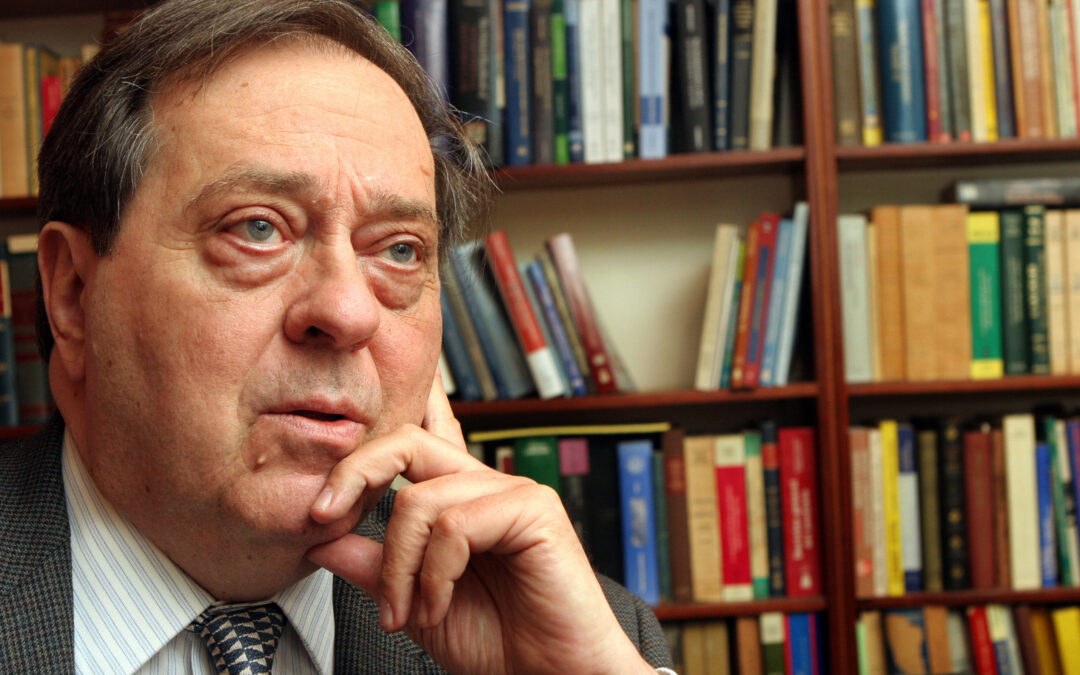
Dec 10, 2019 | News
The ICJ mourns the loss of Professor Pedro Nikken, former President and Commissioner of the ICJ. Prof Nikken was elected ICJ President in January 2011, succeeding Mary Robinson (2008-2010) and followed by Nigel Rodley (2012-2017).
“Pedro Nikken left a tremendous legacy of respect for the rule of law and defense of human rights in his homeland of Venezuela, across Latin America and around the world,” said Prof Robert Goldman, the ICJ’s President.
“ Like so many others, I have lost a cherished friend and mentor whose company I will greatly miss,” he added.
Prof Nikken was a former Judge (1979-1989) and President (1983-1985) of the Inter-American Court of Human Rights. He served as UN Independent Expert on El Salvador from 1992 to 1995 and from 1990-1992 he served as Legal Adviser to the UN Secretary-General on El Salvador’s peace process.
In 1995 he served as Special Envoy of the UN Secretary-General to Burundi. He is former Dean and Professor (emeritus) at the Law School of the Universidad Central de Venezuela.
He was also former President and Permanent Counselor of the InterAmerican Institute of Human Rights. He was a Member (Chair N° 9) of the Venezuelan National Academy of Political and Social Sciences.
“Prof Nikken helped drive the ICJ’s work in pursuit of justice and accountability, particularly through regional human rights systems such as the Inter American Court of Human Rights, even as various governments tried to weaken the process and evade responsibility,” said Sam Zarifi, ICJ Secretary General.
“Pedro was indefatigable as a human rights defender and unsurpassed in the quality of his legal analysis, a rare combination of qualities that made him a role model for several generations of human rights lawyers around the world,” he added.
Pedro Nikken was born in Caracas, Venezuela in 1945. He graduated in 1968 from the Andres Bello Catholic University and obtained a diploma of higher studies in law at the Pentheon-Assas University (Paris II) and a doctorate in law from the University of Carabobo.








